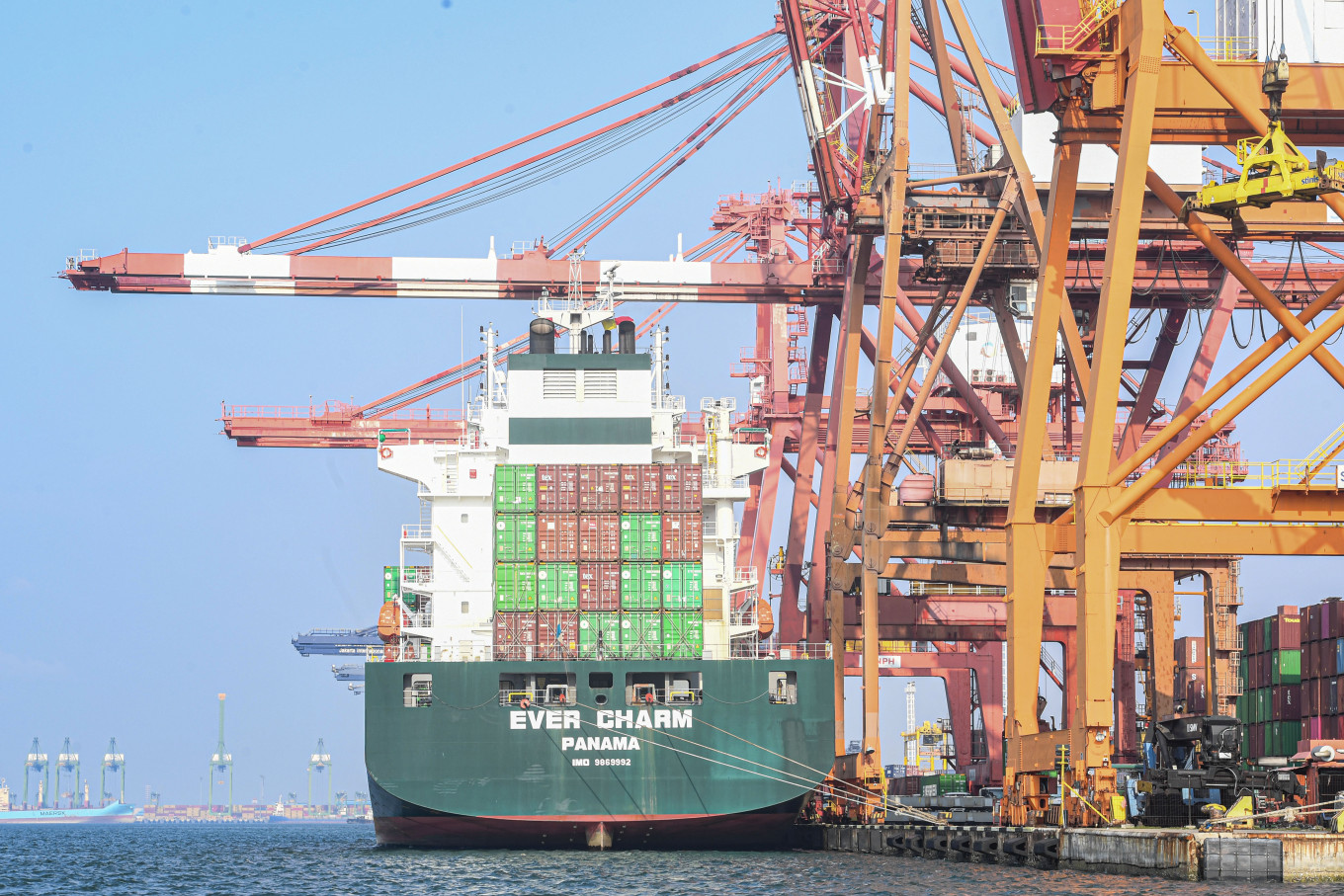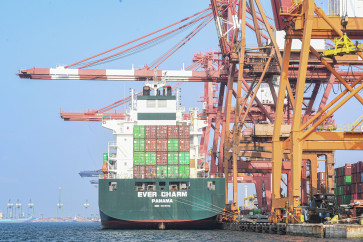Popular Reads
Top Results
Can't find what you're looking for?
View all search resultsPopular Reads
Top Results
Can't find what you're looking for?
View all search resultsDeveloping better logistics for a more competitive Indonesia
Improving the logistics of multimodal supply chains is only sometimes straightforward.
Change text size
Gift Premium Articles
to Anyone
L
ogistics is about the movement of goods from producers to consumers. Logistics are sound when the movement costs are low, delivery is timely and the rate of damaged goods during transportation is limited. Ultimately, logistics policymakers want to achieve a smoother and cheaper movement of goods along the supply chain. This concerns, for example, the movement of cattle from Sumba to Jakarta and automobile parts from one of the industrial zones in West Java to Tokyo. Indonesia is an archipelago; most products are transported by trucks and ships. This calls for a strategy aimed at strengthening multimodal modes of transportation.
Improving the logistics of multimodal supply chains is only sometimes straightforward. We can give the example of agricultural products from East Nusa Tenggara (NTT) that are shipped via the port of Ende to the metropolitan Surabaya. The cheapest option is to ship them in containers of one of the domestic shipping lines that serve the Ende-Surabaya route.
However, there are better options than this. Traders prefer to use ferry services to transport fresh produce directly to Surabaya. This is more expensive. It is, however, much faster, and the distance can be covered in two days. Trucks drive on board the ferries and drive off in the port of Surabaya two days later. Logistics is not only about lowering costs but also about timeliness and a low rate of damaged goods, known as delivery in full on time (DIFOT).
As discussed in an earlier op-ed in The Jakarta Post on March 1, the Indonesian government has recognized that logistics matters for competitiveness. A logistics blueprint was issued as a Presidential Decree covering policy actions for the period 2012-2025. Time is running out, and a new strategy needs to be designed. How should this be done? There are a few considerations.
The first is the need to learn from the current logistics blueprint implementation. What results have been achieved? What went well? What should be done differently? In the second place, it makes sense to look at how successful other countries have strengthened their logistics sector. What are the lessons learned? In the third place, what new developments require updating the logistics strategy? What is the impact of industrialization 4.0? How can the enormous implications of digitalization be incorporated into the logistics sector? This article will review these considerations individually to understand better the challenges and options in designing a new logistics strategy for a new government.
The Office of the Coordinating Economic Minister is preparing a new logistics strategy. As argued in our op-ed from March 1, the coordinating minister’s team would benefit from an empirical database that helps to understand which policies have been successful and which ones have not. There is no longitudinal database that would allow such an assessment. Consequently, the team must start from scratch. The inter-department team is holding marathon sessions with the private sector to hammer out the contours of the new logistics strategy.
The team has opted for a bottom-up approach by reviewing what can be done to make domestic and international supply chains more efficient. This is good news. There is no more space for “top-down” strategies, such as assigning Kuala Tanjung and Bitung as the only gateway for Indonesia’s international trade. Instead, the focus will be on making the existing international ports more competitive.



















